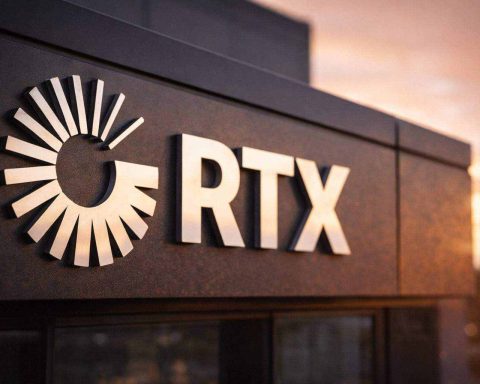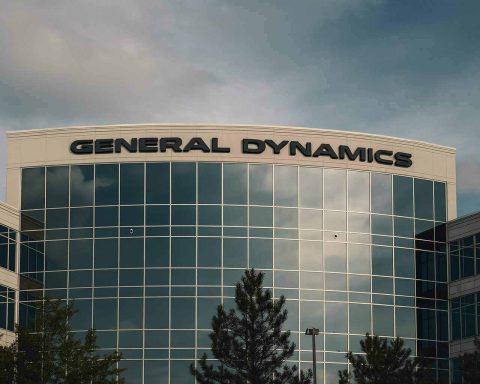As Rachel Reeves delivers her high‑stakes Autumn Budget 2025 today (26 November), one measure looms larger than almost any explicit “tax rise”: a plan to freeze income tax thresholds for longer – the classic “stealth tax” that lets inflation quietly do the work.
The chancellor has already ruled out breaking Labour’s manifesto pledge not to raise the rates of income tax, VAT or employee National Insurance. But she is leaning heavily on threshold freezes and a raft of other targeted tax changes to plug a £20–30bn hole in the public finances.Sky News+2The Guardian+2
Here’s what we know so far today, how a threshold freeze actually works, and who is likely to feel it most – in London, across the UK, and over the rest of the decade.
What is a freeze on income tax thresholds?
In England, Wales and Northern Ireland, income tax is charged in bands:
- Personal allowance – £12,570: you pay no income tax on earnings up to this level.
- Basic rate (20%) – from £12,571 to £50,270
- Higher rate (40%) – from £50,271 to £125,140
- Additional rate (45%) – above £125,140
Above £100,000, your personal allowance is also tapered away by £1 for every £2 of income, so high earners can end up paying tax on all their income.Sky News
Normally, those thresholds rise each year with inflation so that, in real terms, the system stays broadly similar: as prices and wages rise together, tax bands move too.
Instead, since 2021 the government has frozen the cash value of the thresholds. The Conservative government locked them until 2028; Labour stuck with that plan last year, and Reeves is now widely expected – and reported – to extend the freeze by a further two years, likely to April 2030.Sky News+1
Scotland sets its own income tax bands, so Westminster’s Budget doesn’t change Scottish rates. But UK‑wide thresholds (like the personal allowance) still matter for some savings and capital gains rules, and Scottish funding is indirectly affected by UK tax decisions.Saga
Why economists call it a ‘stealth tax’ – fiscal drag explained
By keeping thresholds still while wages rise, more of your income is taxed and more people drift into higher tax bands. That effect is known as fiscal drag.
Sky News estimates that continuing the freeze on current plans would bring around four million more people into income tax, three million extra into the 40% higher rate, and 400,000 more into the 45% additional rate by 2028–29.Sky News
The Office for Budget Responsibility (OBR) and the Institute for Fiscal Studies (IFS) put some big numbers on this:
- Freezes to just the basic and higher‑rate thresholds are expected to raise around £39bn a year by 2029–30 – about as much as adding 3.5 percentage points to every income tax rate.Sky News+1
- If Reeves extends all the current freezes, the IFS calculates it would raise roughly an extra £8.3bn per year by 2029–30 compared with letting thresholds unfreeze in 2028.Institute for Fiscal Studies
That is why the FT and others describe the policy as a “stealth tax” – it raises large sums without any headline rate increase, and many people only notice when they suddenly tip into a new band.Financial Times+1
Who will be hit hardest by the threshold freeze?
Mid‑income workers near the higher‑rate line
Analysis ahead of today’s Budget suggests that people earning around £50,000 are among those most exposed to an extension of the freeze. As pay creeps up with inflation, more of that income is taxed at 40% instead of 20%.Financial Times+1
IFS modelling shows that if freezes are extended to 2030:
- The number of higher‑rate taxpayers (40% or more) would jump to about 10.1 million, up 4.8 million compared with a world with no freezes.
- That would mean roughly one in four employees earning enough to pay higher‑rate tax by the end of the decade – compared with about one in ten before the freezes began.Institute for Fiscal Studies
London and the South East
Because wages are higher in London and surrounding areas, more households are pushed over the thresholds.
- The Evening Standard reports that if the freeze is extended, 2.6 million people in London and the wider South East will have been dragged into paying higher rates of income tax by 2029/30.The Standard
- A separate analysis in The Times suggests about half of London boroughs are braced for significantly higher average tax bills as a result of frozen thresholds rather than explicit rate hikes.The Times
In short: if you live in a high‑pay region, especially as a dual‑earner household, the freeze bites sooner and harder.
Minimum‑wage and part‑time workers
It’s not just the well‑paid. Because the national living wage is rising – to £12.71 an hour from next April, worth about £900 a year to a full‑time worker – more low‑paid workers will be nudged into tax.Sky News+1
The IFS estimates that with an extended freeze:
- A minimum‑wage worker would need to work only 18 hours a week before starting to pay income tax by 2029–30, down from 31 hours a decade earlier.
- A full‑time minimum‑wage worker would be paying about £759 more tax a year by 2030 than if thresholds had simply risen with inflation.Institute for Fiscal Studies+1
Pensioners
Pensioners are increasingly in the firing line too:
- Because the state pension is protected by the triple lock, its cash value is rising faster than the frozen personal allowance. The IFS says the full new state pension will exceed the personal allowance in 2027–28, meaning all recipients with no other income become taxpayers.Institute for Fiscal Studies
- Separate analysis for LCP and others suggests a two‑year extension to 2030 would drag around half a million extra pensioners into paying income tax, taking the total to roughly 9.3 million.Insider Media Ltd
That means millions of retirees will, for the first time, need to deal directly with HMRC over small tax bills – something charities warn could be both confusing and stressful.
How much extra could people end up paying?
Different think‑tanks have modelled the impact of extending the freeze on personal allowances and tax bands out to 2030. Their numbers vary slightly but paint a similar picture: more tax for most workers, even if their real living standard barely improves.
Examples from published analyses include:
- A worker on £40,000 today would pay about £321 extra income tax in total by 2030 under an extended freeze, compared with thresholds rising with inflation from 2028.Saga
- Someone on £44,000 would face around £843 more tax over the same period.Saga
- A higher earner reaching £90,000 would, on average, face roughly £2,600 more tax each year by 2030 due to the freeze, according to modelling highlighted in The Times.The Times
- Analysis by Rathbones suggests that if the freeze is carried through to 2030, someone earning £100,000 by April 2025 could end up paying about £4,043 extra a year, compared with £2,517 if the freeze ended in 2028.Actuarial Post
These are illustrative estimates based on forecast inflation and wage growth. Your own outcome will depend on your pay rises, hours, pension contributions and where you sit relative to the thresholds.
What else is in Budget 2025 alongside the threshold freeze?
Reeves is not relying on fiscal drag alone. Ahead of and on Budget day, ministers have trailed – and in some cases confirmed – a “smorgasbord” of smaller tax rises and tweaks designed to spread the pain.The Independent+2Sky News+2
Among the key measures expected or already announced today:
New and higher taxes
- Tourist levies – Local authorities and city mayors in England will be allowed to charge a per‑night “tourist tax” on hotel and short‑stay accommodation, with the money ring‑fenced for local services.Sky News+1
- “Milkshake tax” – The existing sugar levy on soft drinks is being expanded to cover packaged milkshakes and some high‑sugar coffees and lattes, aimed at tackling obesity and raising extra revenue.Sky News+2The Independent+2
- High‑value property charges – Reports point to extra taxes on homes worth £2m or more and a revaluation of higher council tax bands to capture more from expensive properties.Sky News+1
- Gambling and EV levies – The Budget is expected to reform and increase gambling duties and outline a pay‑per‑mile scheme for electric vehicles, to replace falling fuel duty revenues as more drivers switch to EVs.Sky News+2Research Briefings+2
- Salary sacrifice clamp‑down – Popular salary sacrifice schemes (including some pension arrangements) are set to face a cap on the amount that can be sheltered from tax and National Insurance, potentially raising billions.The Guardian+1
Giveaways and offsets
Alongside the stealthier tax rises, the chancellor is also trying to show something tangible for households:
- The national living wage rises to £12.71 an hour for workers aged 21 and over from next April – worth about £900 a year to a full‑time worker.Sky News+1
- State pensions are due an above‑inflation increase of around £550 a year for 13 million pensioners, under the triple lock.Sky News
- Benefits will be uprated in line with inflation, at an estimated cost of £6bn, with strong pressure from Labour MPs for Reeves to use some of the “stealth tax” revenue to at least partially relax the two‑child benefits cap.Sky News+1
- Fuel duty and regulated rail fares are being frozen, and there are moves to cut some green levies on energy bills – though that may reduce funding for future efficiency schemes.Sky News+1
The political row: manifesto promises and ‘fairness’
Politically, extending the threshold freeze is explosive.
Labour repeatedly attacked the Conservatives for using exactly this tactic, calling it a “stealth tax” that “takes more money out of working people’s payslips”. Now Reeves is deploying the same tool on a larger scale.Sky News+1
Reeves insists she is making “fair and necessary choices” to fix the damage from austerity, Brexit and the pandemic, and has promised not to repeat last year’s huge package of tax rises.Sky News+1
Opposition parties are not buying it:
- Conservatives accuse her of breaking faith with voters after already presiding over tax rises worth about £40bn last year, calling the new Budget “political weakness” that hands the bill to working families.Sky News+1
- Liberal Democrats say Britain is stuck in a “cost of living permacrisis” and warn of “yet more betrayals” for households who were promised growth and lower bills.Sky News+1
- The SNP and Greens argue the package leans too heavily on tax hikes and not enough on long‑term investment or progressive wealth taxes.Sky News+1
Think‑tanks like the IFS and Institute for Government, meanwhile, stress that while threshold freezes are a legitimate way to raise revenue, they fundamentally reshape who pays tax, by drawing in low‑income workers, pensioners and more of the “squeezed middle” – not just the very rich.Institute for Fiscal Studies+2Institute fo…
Will you pay more income tax?
Every household is different, but there are some simple checks you can do as Budget 2025 lands:
- Look at your current gross income (salary before tax) for 2024/25 and what you expect it to be in 2026–30.
- Compare it with today’s bands: £12,570, £50,270, £125,140. If your pay rises but those numbers don’t, more of your income will be taxed – and you may cross into 40% or 45%.Sky News+1
- Factor in pay rises and promotions. Even inflation‑only increases can tip you into a higher band over time.
- Consider pension contributions and salary sacrifice. These still reduce your taxable pay – but any new caps announced today could limit how much you can shelter.The Guardian+1
- If you’re retired, check your total taxable income (state pension plus any private pension or earnings). The closer it is to £12,570, the more likely you are to be pulled fully into the tax net as the state pension rises.Institute for Fiscal Studies+1
Broadly:
- If you earn less than the personal allowance and have no other taxable income, the freeze won’t directly increase your tax – though you still feel inflation.
- If you’re in work and already paying tax, you are very likely to see your tax bill rise in cash terms over the next five years, even if your standard of living only just keeps pace with prices.
- If you’re in London or the South East, on £40k–£80k, or a higher earner above £100k, the combination of the freeze and the loss of allowances means your effective tax rate will climb sharply without any change in headline rates.The Standard+2Institute for Fiscal Studies…
Remember, all of this is general information based on published forecasts and today’s announcements. For big financial decisions – changing jobs, pensions or investments – it’s wise to check the final HMRC rules or talk to a qualified adviser.
What happens next?
Today’s choreography looks roughly like this:
- 12:00 – Prime Minister’s Questions
- 12:30 – Rachel Reeves delivers the Budget in the House of Commons
- ~14:30 – The OBR sets out its new economic and fiscal forecasts
- Afternoon and evening – Parties, think‑tanks and campaigners publish their verdicts, and the fine print emerges in Treasury “Red Book” documents.Sky News+1
The threshold freeze is only one part of a densely packed Budget. But because it quietly compounds year after year, its impact on who pays tax – and how much – will define much of the next Parliament.
All figures and measures in this article are based on information available on 26 November 2025. Details may be refined as full Budget documentation, legislation and HMRC guidance are published.









